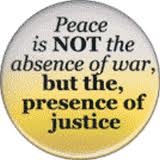Assalamualaikum
Tip of the Day
"The greater the mankind rushes towards making his life comfortable/simpler, the more problems/difficulties he is likely to invite in future."
“Only switch your WLAN (WiFi) on when you need it. With laptops, in particular, it is a good idea to switch the WLAN (WiFi) off as otherwise the device will repeatedly try to connect to a network, leading to unnecessary radiation…and caution should be exercised primarily when using devices held close to the body, such as laptops, PDAs and Internet telephones"
Achieving acceptable EMF radiation levels
Alhamdulillah in the small office where I work, I have arranged the office to minimise computer radiation for all of family:
- Desktop CPU is on the floor next to the user's desk, as far away from the user as possible.
- The Wired Modem is far away from everyone - at max cable stretch.
- There is no cordless/wireless equipment (keyboard, mouse, printer, desktop etc.) in our office.
- The nearest wired printer is about 75 cm (30") away from me. The computers and printers are all networked together into our (wired) office network .
- Our internet connection is by DSL with a wired modem
- Wireless router, permanently switched off.
- Use Wired Phone mostly, with little need for Cell-phone.
- Cell phones are kept @ considerable distance, away from Child (near Stairs).
- At night, the least used phone is kept in Aeroplane mode. The same phone in Aeroplane mode works well with Child, if she demands it.
- No Smartphones @ home. Good for us.
- We use anti-glare glasses to prevent Eye Strain. See details - Anti-Glare Benefits
15 ways you can reduce cell phone radiation (#15 added March 2011)
The following list is sorted from lowest cost/easiest solution to the highest cost /hardest solution.
You should try to achieve at least a 10X reduction in cell phone Radio Frequency Radiation.
The solutions multiply, so a 2X and 5X would be reduce RF by 10X
You should try to achieve at least a 10X reduction in cell phone Radio Frequency Radiation.
The solutions multiply, so a 2X and 5X would be reduce RF by 10X
- Use a speaker phone. The use of a speakerphone keeps the cell phone a long way from your brain and body
- Alternate which ear you listen to the cell phone with.
- Reduce the total amount of time using the cell phone. Use wired or cordless phone for long conversations. 2X – 20XNote: Cordless phones made since about 2001 put out much less radiation
Note: Can use call forward on virtually all cell phones:*72NumberToCall to start forwarding, *73 to stop forwarding
- Minimize use of your cell phone where you have weak signals: possible areas include: rural, in house, in car,….
Cell Phone power level/radiation level can be 100X stronger when you have weak signals (one bar or no bar) – the cell phone has to shout!. - Change network/provider if you can determine that the new provider has a much stronger cell signal in your house -so that the cell phone will no longer have to shout.
- Use a headset. 5X – 20X cost $10 to $50
Some headsets claim noise rejection. They cost $30 – $100
you may want to use a clamp-on RF choke/ferrite bead clamped around the wire
such as at http://www.mercola.com/forms/ferrite_beads.htm - Buy a cell phone with a very low SAR rating 2X – 10X
#2: Keep your cell away from your ear and your pocket!
#3: Disable Wireless Internet, using Ethernet cables instead.
#4: Unplug digital cordless phones and use corded instead.
#5: Be aware of external sources of radiation and keep a setback distance of at least 400 meters from a mobile phone Towers.
#6: Choose LCD TV’s over Plasma TV's
Read in detail http://emfwise.com/doc/
Practical Steps to Reduce Your Exposure
Below is a list of precautions for Wireless Radiation, Intermediate Frequencies, AC Magnetic Fields, AC Electric Fields, and Ionizing Radiation.
| Microwave Radiation | Warning | Recommended Alternatives | ||
|---|---|---|---|---|
| Home Phones | 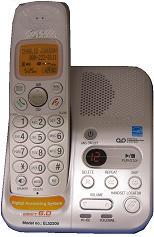  Cordless Phones. The potential dangers of the ubiquitous cordless phones have been raised in the European Parliament, the German Federal Radiation Protection Agency, Salzburg, Austria, and recently in Israel as well. See studies by Leonnart Hardell which indicate that cordless phones may be harmful.
| 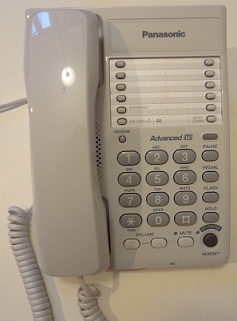  Wired phones. Traditional wired phones are scarcely found these days, but are still available at online stores like amazon.com andebay.com.
| ||
| Internet Connection | 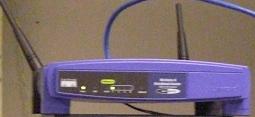 Warnings about potential health dangers from Wi-Fi have been raised in the European Parliament, European Council, German Federal government, and the public health department of Salzburg, Austria. Wi-Fi Routers. Wi-Fi routers provide 24/7 continual wireless radiation, even when no computer is on the network. If wired alternatives are not possible, keep the router at a considerable distance, e.g., 5-10 meters (see Distance Matters), and turn it off when not in use. One possibility is to use a timer switch that automatically turns it off at night. Another possibility is to find a router that allows for scheduling capability, as well as reduced power level, which can provide a significant reduction of radiation. Wi-Fi Enabled Laptops. Most laptops today come with built-in Wi-Fi. Depending on your luck, some models are on 24/7 even when you don't use it (e.g., some eeepc's); others are on when you use it, or once per minute when you're not using it (HP laptop). Note that even if you're connected by an Ethernet cable, your computer may still be transmitting Wi-Fi. It needs to be disabled. When no other internet options are available, distance can be achieved with a USB Wi-Fi adapter on a long 10' USB extension cord, while disabling the built-in Wi-Fi on your laptop, since it is much closer to you. | 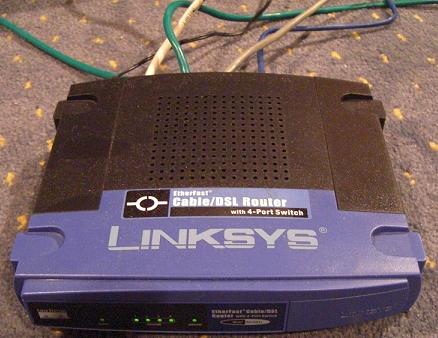 Wired cable/DSL router. A wired alternative can be used in place of a wireless router, with Ethernet cables to connect to your computers. See a sample network setup here. Be aware, however, that intermediate radio-frequencies and electric fields can be injected from a wired router or switch onto Ethernet cables. Check with a sensitive AM radio and a non-contact volt sensor. If there are pulsing intermediate frequencies or especially strong radio-frequencies from a particular wired router or switch, try one with fewer ports or a different vendor. Body voltage, if detected, can be reduced via a grounding cord connected to the metal ethernet jack. The intermediate frequencies can be reduced with distance from the device and ethernet cables. Router vs. Switch: Note that a router should be used rather than a switch to connect to the cable or DSL modem, if more than one computer needs to use the internet. If more ports are needed, a switch can then be used to extend the connection to further computers. | ||
| Cell phones | 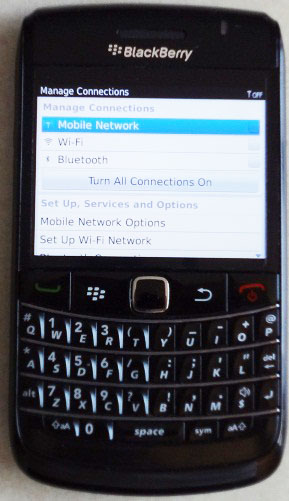   Warnings about cell phones have been raised in France, Finland, Israel, Russia, India, and the European Parliament. Read the government health advisories.
|
| ||
| Wi-Fi Enabled Devices |  Printer, projector, etc. with Wi-Fi Capability Many of these radiate continually 24/7 as soon as they are plugged in.   Wireless keyboards and wireless mice. iPod Touch, iPAD, Mobile WiFi, etc.: Look for software options to disable Wi-Fi. There may be occasional bursts of radiation even in standby mode, i.e., when the device is not used, as long as Wi-Fi is enabled. | 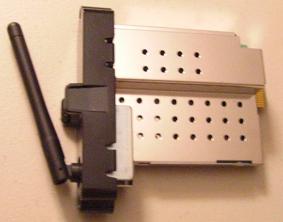 Get a Wired printer or physically remove the Wi-Fi modulefrom the Wi-Fi printer or projector. In the above photo, the Wi-Fi module was removed from the printer with the help of a Philips screwdriver. (The software option to turn off the 24/7 radiation may not always exist.)  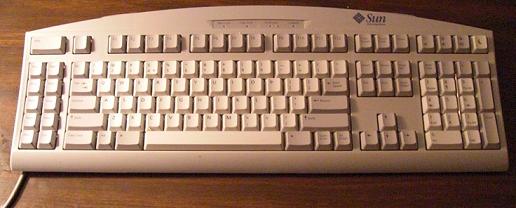 Use a wired keyboard and mouse instead of a wireless one. A ball-corded mouse is one possibility. Note, however, that these wired devices still contain some intermediate radio-frequencies, and that USB cables may carry some digital harmonics also from the computer and its power supply. | ||
| Cell Tower/mobile phone mast External wireless radiation | 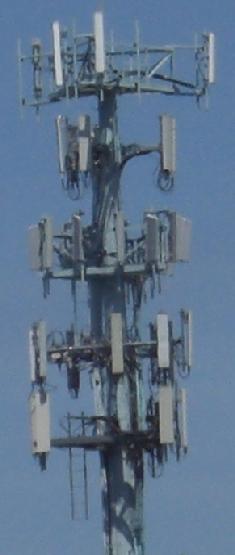 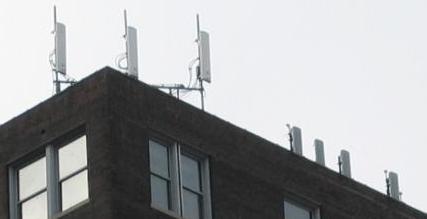 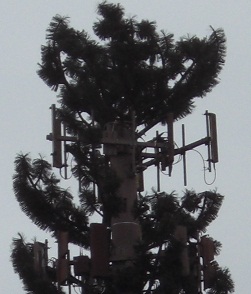 The radiation of a cell tower is continual (24/7) and living within a 300 to 400 meter radius could be dangerous. Perform due diligence before purchasing a home or apartment, to ensure that mobile phone mast levels are low. Check with antennasearch.com and your town's zoning board to ensure that no new masts are planned in the area. Note that poor signal reception on your mobile phone may be misleading, because it may be low for one provider but high for another. Relying upon visual inspection is also difficult, since some cell towers are concealed (see the pine tree disguise at right). The best way to check is with a meter. Neighbors next door may also contribute to your external wireless radiation, e.g., if they have a Wi-Fi router or DECT cordless station on the other side of the wall. Again, you need a meter to be sure. | 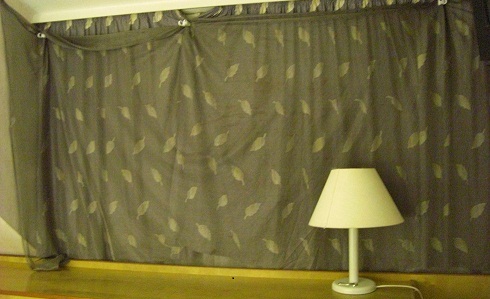 In some cases, a metallic cloth can be attached to the outside of a curtain (front or back) for a significant reduction in microwave radiation.
Warning: Conductive materials, while blocking microwave frequencies, may potentially spread electrical field exposure. Thus, it is best to turn off circuit breakers and unplug wires affecting the area to be shielded. | ||
| Wireless Smart Meter |  Many next-generation electrical meters are using wireless frequencies to transmit electrical usage information, in contrast to older analog meters, which require meter readers to check the electricity level. Unfortunately, many of these wireless meters are reportedly transmitting frequently (sometimes every few seconds) at levels up to 10 or 100 times higher than a cell phone. They have reportedly resulted in health, security, and privacy issues, as well as fire risk and rate hikes. | 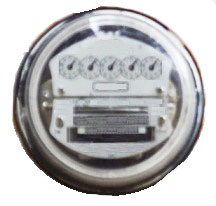 The analog meter(which looks almost the same, except that it has dials instead of digits) is preferrable. Some areas in California have a delay list for smart meters, and opt-out options are being considered. Advocates say that a wireless smart meter with a radio-off option will not solve the "dirty electricity" resulting from the switching-mode power supply. For more information, see Smart Meters. | ||
| Microwave Oven | 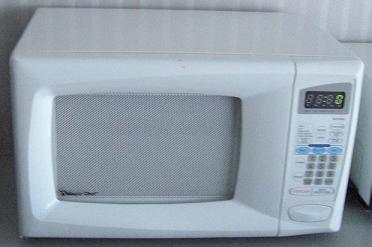 The microwaves that leak out of the microwave oven are very strong, and power line magnetic fields are also high, although the microwave radiation is only for the short duration when you are actually using it. Stand back at least 10 meters if possible. Microwaves can also alter the chemical composition of your food.Some of the newer microwaves may have energy-saving features that add to the EMF. | 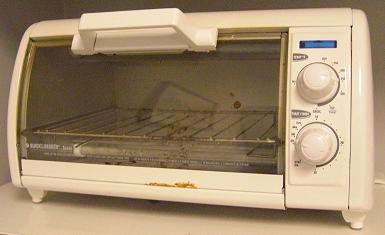 Use a portable oven instead to heat your food. It may take 3 times as long, e.g., 9 minutes instead of 3 minutes. | ||
| E-book Readers |  The Amazon KindleTM uses wireless communications by default. The wireless transmissions can be disabled, however, and the USB cable which is built into the 2-piece power cable can be used as an alternative method of transfer. Distance is still advised, even with the wireless functions disabled, since the graphite Kindle eInk readers still contain intermediate frequencies, in standby mode, as well as during page turns. These frequencies can be detected with a Radio Shack $15 radio in AM mode at the lower frequency setting. The iPad uses LCD and so it may have digital harmonic frequencies. The iPad may also use Wi-Fi and/or 3G, which should be disabled on the iPad, when not in use. | 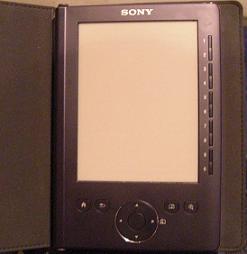 Although eInk technology is generally expected to use less power and fewer digital harmonics frequencies than LCD, additional electronics may be added on top of eInk technology, which add to these frequencies. The Sony pocket reader (shown above), which uses a wired USB cable, may be a safer choice, from an EMF point of view. | ||
| Wireless Baby Monitor | 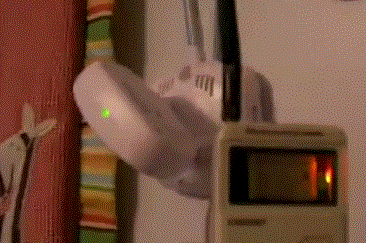 Digital wireless baby monitors (in particular, DECT baby monitors) have been observed to cause more problemsfor babies than the analog wireless baby monitors. | An analog monitor may be a better alternative, or else a wired system can be used, e.g., using a web camera. However, keep it a distance away and make sure not to run the wires near the crib, as the electrical field can be problematic as well. |
Read in detail http://emfwise.com/
******************************
Now below is particularly for Asian countries like India, Pakistan, particularly Metro cities like Bangalore, Delhi, Hyderabad, having cellphone towers on Top of houses and Shops.
Does radiation from cellphone towers cause cancer?
Yes, said the Kasliwals, two of who have been diagnosed with brain cancer after three towers were installed next to their upscale C-scheme neighbourhood in Jaipur. Since then, illnesses, both minor and major, have become a part of related stories
“Following that, in January 2011, a report by an inter-ministerial committee made recommendations to reduce the exposure to 450 mw/sq m. It has not been implemented yet,” said Kumar.
Cancer happens in extreme cases, with almost everyone living close to mobile towers reporting disorders such as sleep disturbances, headaches, fatigue, joint pains, among others.
More:-http://www.
“Even with cellphone use, benign swelling in the brain and head, hearing disorders, headaches and anxiety neurosis are well established,” said Dr Sameer Kaul, cancer surgeon, Indraprastha Apollo Hospital, New Delhi.
The impact is higher in children, who have smaller and thinner skulls.
Although radiation exposed by a person during a mobile phone call is 10 times higher than the exposure from a cell tower, mere standing in a wi-fi enabled area is equal to talking on your mobile for 20 minutes.
If cell phone service providers set up their towers on the terrace of a nearby building the high level of radiation transmitted by the towers is a potential health hazard. A single tower can emit several different patterns of relatively intense signals to homes, schools and businesses within hundreds of feet from the tower. A French study conducted among people living within 300 metres of cell phone towers shows an increased incidence of tiredness within 300 metres; of headache, sleep disturbance, and discomfort within 200 metres; and of irritability, depression, loss of memory, dizziness, and libido decrease among others within 100 metres.
Pregnant women and children are in greater danger from cell phone towers than the normal population. Developing organs of fetus or child are most sensitive to any possible effects of EMR exposure. The thinner skulls of kids and rapid growth rates make children more susceptible to the tower's waves [22]. A recent study on pregnant women with heavy cell phone use found behavior problems in their children. According to Dr. Om Gandhi, an eminent scientist in the area of bioelectromagnetics, cell phone radiation makes children more susceptible to DNA breakage, genetic damage, and incidence of cancer. It reduces their life span. It is very unfortunate to see huge cell towers thronging the rooftops in and around schools or educational institutions and this has become more or less a common sight in cities across India and elsewhere. This is largely because the managements at schools or educational institutions see a definite upside of income from cell towers and lease their property to cell tower companies ignoring the health risks that these towers pose on their students who in turn are prone to prolonged exposure to electromagnetic radiation. The parents associations should be very watchful and play more active role in reigning on the school boards and prevent siting of cell phone towers within or around the schools premises.
More:-http://drsirish.
Yes, said the Kasliwals, two of who have been diagnosed with brain cancer after three towers were installed next to their upscale C-scheme neighbourhood in Jaipur. Since then, illnesses, both minor and major, have become a part of related stories
They brought mobile towers down their lives and the lives of the 50 other families in their neighbourhood.
“Last year, both my younger brother Pramod and I were diagnosed with brain cancer. Pramod is critical,” said Sanjay Kasliwal, who belongs to a family of prominent jewellers in Jaipur. The Kasliwals have no family history of cancer.
Experts agreed. “Being exposed to a mobile tower located within 50m of your home or workplace is like being in a microwave oven for 24 hours,” said Prof. Girish Kumar, department of electrical engineering, IIT Bombay, who submitted a report on cell tower radiation to the department of telecommunications in December 2010.“Last year, both my younger brother Pramod and I were diagnosed with brain cancer. Pramod is critical,” said Sanjay Kasliwal, who belongs to a family of prominent jewellers in Jaipur. The Kasliwals have no family history of cancer.
“Following that, in January 2011, a report by an inter-ministerial committee made recommendations to reduce the exposure to 450 mw/sq m. It has not been implemented yet,” said Kumar.
Cancer happens in extreme cases, with almost everyone living close to mobile towers reporting disorders such as sleep disturbances, headaches, fatigue, joint pains, among others.
More:-http://www.
“Even with cellphone use, benign swelling in the brain and head, hearing disorders, headaches and anxiety neurosis are well established,” said Dr Sameer Kaul, cancer surgeon, Indraprastha Apollo Hospital, New Delhi.
If cell phone service providers set up their towers on the terrace of a nearby building the high level of radiation transmitted by the towers is a potential health hazard. A single tower can emit several different patterns of relatively intense signals to homes, schools and businesses within hundreds of feet from the tower. A French study conducted among people living within 300 metres of cell phone towers shows an increased incidence of tiredness within 300 metres; of headache, sleep disturbance, and discomfort within 200 metres; and of irritability, depression, loss of memory, dizziness, and libido decrease among others within 100 metres.
Pregnant women and children are in greater danger from cell phone towers than the normal population. Developing organs of fetus or child are most sensitive to any possible effects of EMR exposure. The thinner skulls of kids and rapid growth rates make children more susceptible to the tower's waves [22]. A recent study on pregnant women with heavy cell phone use found behavior problems in their children. According to Dr. Om Gandhi, an eminent scientist in the area of bioelectromagnetics, cell phone radiation makes children more susceptible to DNA breakage, genetic damage, and incidence of cancer. It reduces their life span. It is very unfortunate to see huge cell towers thronging the rooftops in and around schools or educational institutions and this has become more or less a common sight in cities across India and elsewhere. This is largely because the managements at schools or educational institutions see a definite upside of income from cell towers and lease their property to cell tower companies ignoring the health risks that these towers pose on their students who in turn are prone to prolonged exposure to electromagnetic radiation. The parents associations should be very watchful and play more active role in reigning on the school boards and prevent siting of cell phone towers within or around the schools premises.
More:-http://drsirish.
More links
How dangerous are mobile phone towers in residential buildings? | Health News | Health Research | Di
